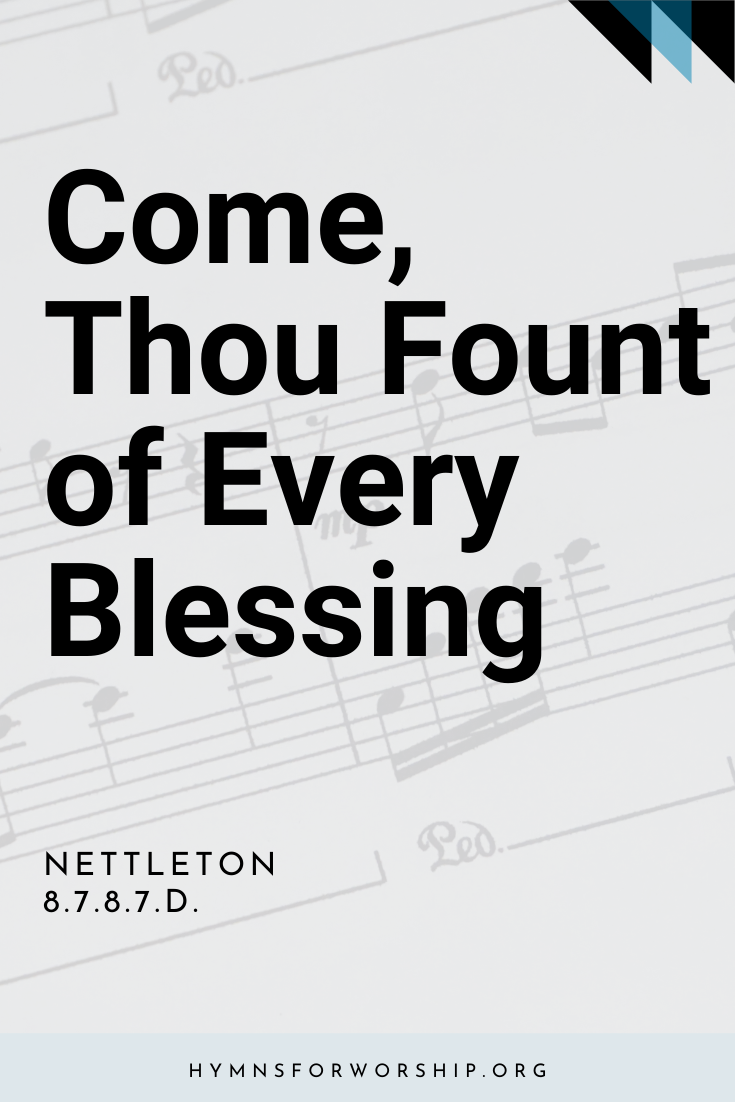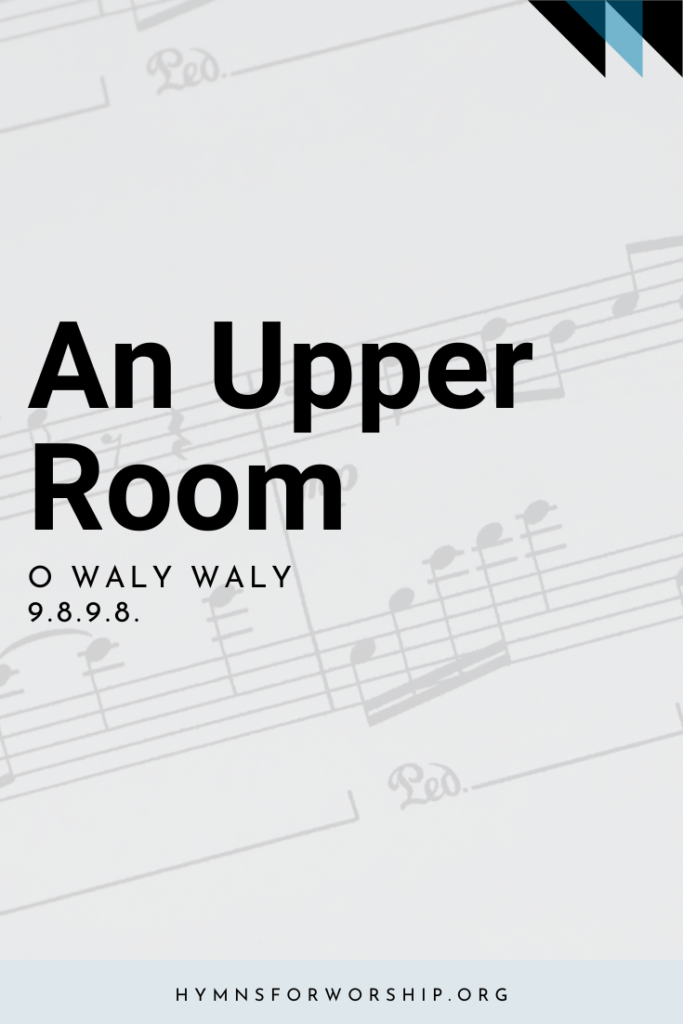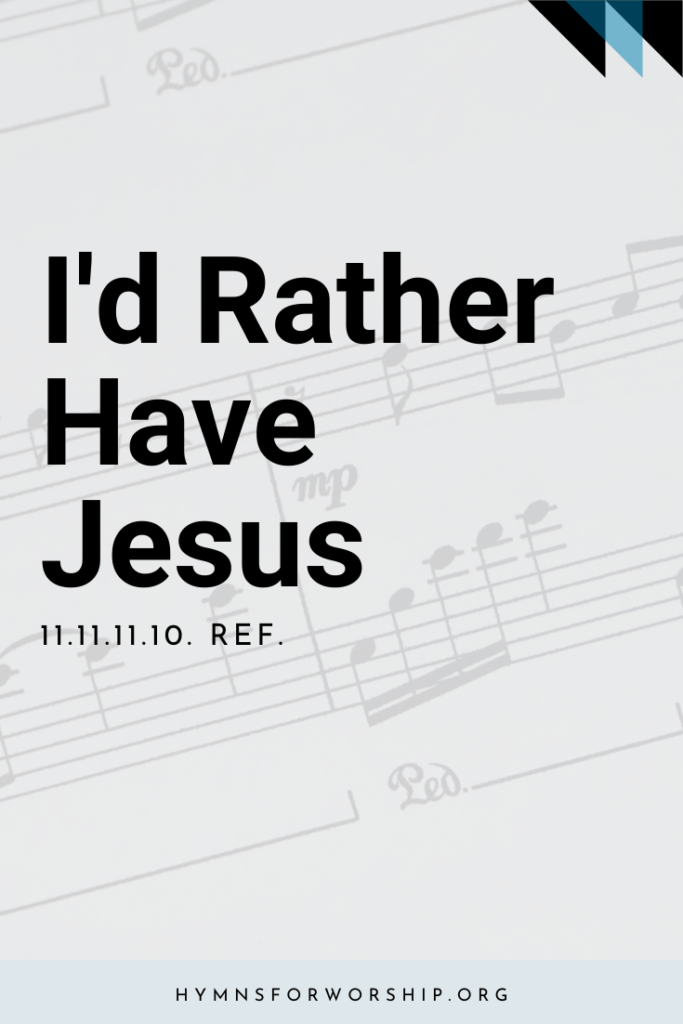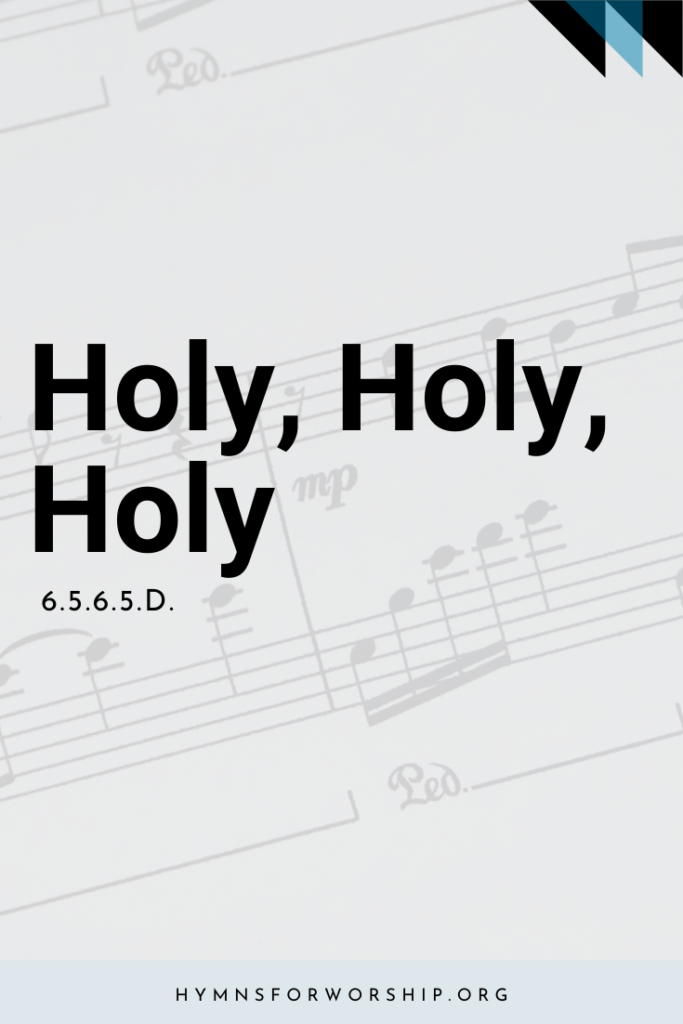GOSPEL >> Salvation & Redemption
SDAH 334
Come, thou Fount of every blessing,
Tune my heart to sing thy grace;
Streams of mercy, never ceasing,
Call for songs of loudest praise.
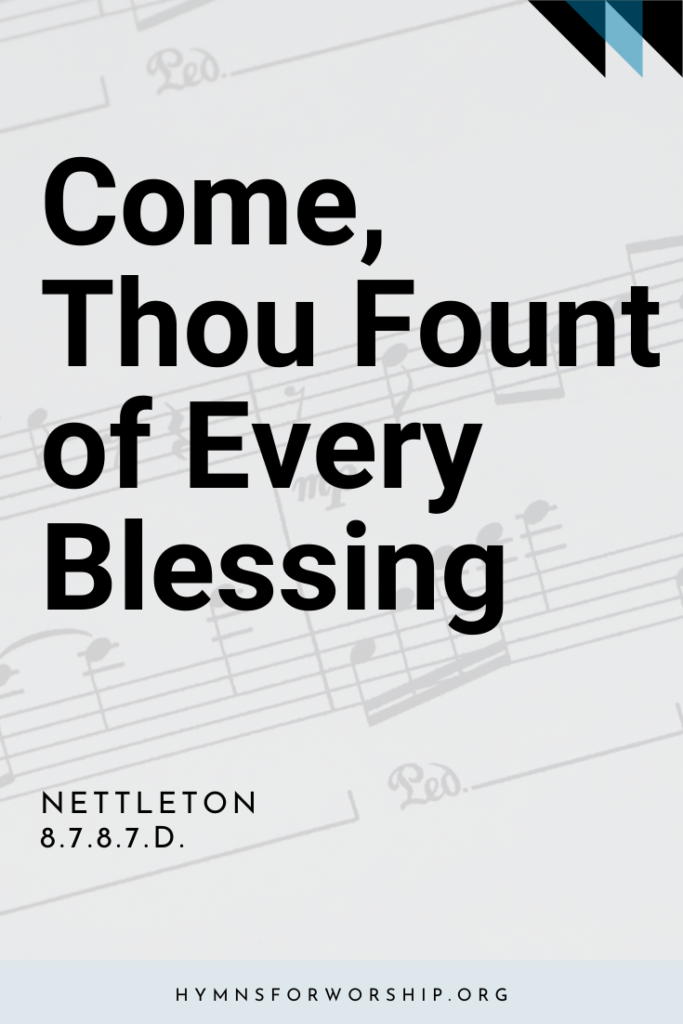

Text
1
Come, thou Fount of every blessing,
Tune my heart to sing thy grace;
Streams of mercy, never ceasing,
Call for songs of loudest praise.
Teach me ever to adore Thee,
May I still Thy goodness prove,
While the hope of endless glory
Fills my heart with joy and love.
2
Here I raise mine Ebenezer;
Hither by thy help I’ve come;
And I hope, by thy good pleasure,
Safely to arrive at home.
Jesus sought me when a stranger,
Wandering from the fold of God;
He, to rescue me from danger,
Interposed his precious blood.
3
O, to grace how great a debtor
Daily I’m constrained to be!
Let thy goodness, like a fetter,
Bind me closer still to thee.
Prone to wander, Lord, I feel it,
Prone to leave the God I love;
Here’s my heart–O, take and seal it,
Seal it for thy courts above.

Hymn Info
Biblical Reference
(a) Ps 36:9; 1 Sam 7:12; Matt 18:11 (c) 2 Cor 9:14
Author
Robert Robinson (1735-1790)
Year Published
1758
Hymn Tune
NETTLETON
Metrical Number
8.7.8.7.D.
Tune Source
John Wyeth’s Respository, 1813
Theme
SALVATION & REDEMPTION
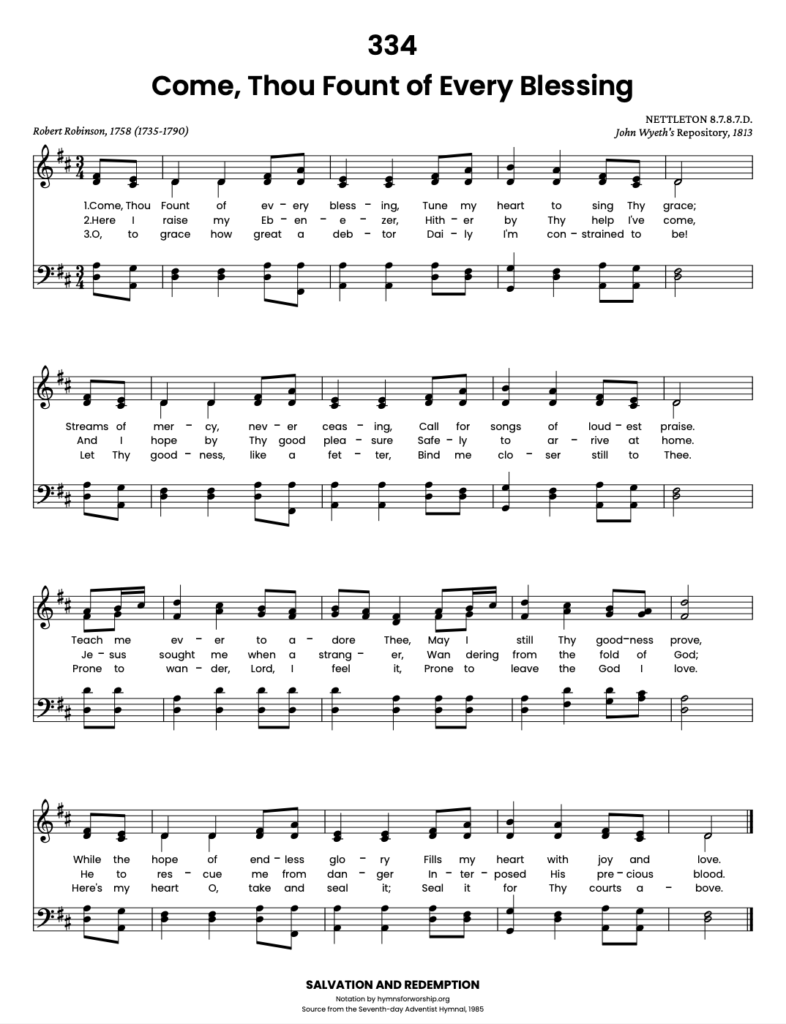
Get the hymn sheet in other keys here
Watch
Notes
Make each hymn more meaningful with these helpful tools: Short, ready-to-use hymn introductions for church bulletins, multiple ways to introduce a hymn based on your worship theme and in-depth history and insights to enrich your song service.
The fount of every blessing we need is Jesus. He is the spring of endless love that quickens our hearts to love Him in return and be obedient to His will. (Lesson 7, 2nd Quarter 2021 -Monday, The Pattern of Salvation, 5/10/2021)
As we grow older we sometimes struggle to provide for our basic needs–for shelter, food, an education, work, and family. God promises that when we seek Him first, all other blessings will be added unto us for our very best. (Lesson 8, 1st Quarter 2023, Managing for the Master – Sunday, “First Things First” 3/2/23)

